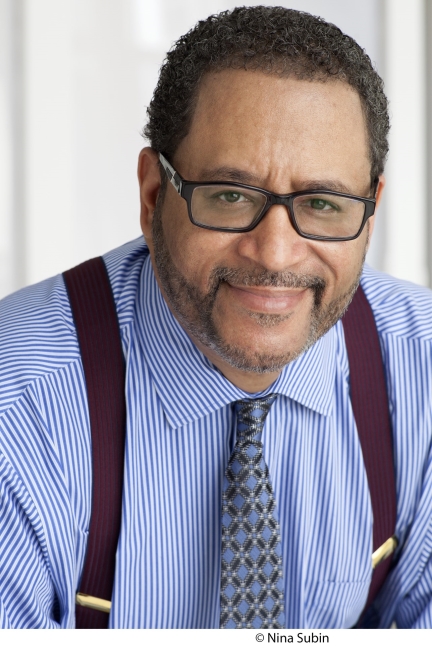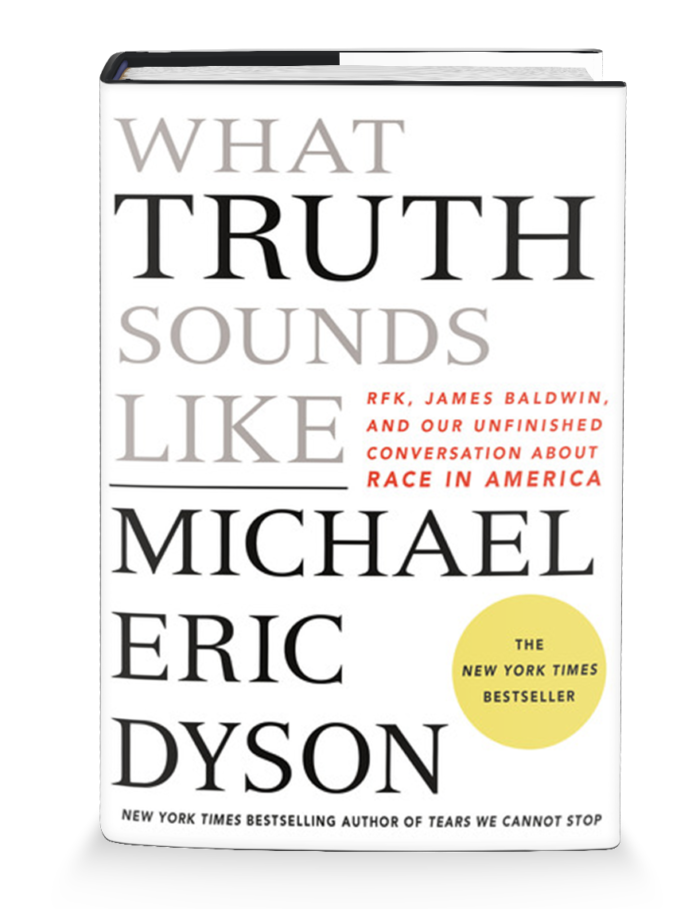by Michael Eric Dyson
In 1963, Attorney General Robert Kennedy sought out James Baldwin to explain the rage that threatened to engulf black America. In What Truth Sounds Like, Michael Eric Dyson draws lessons from their meeting and applies them to our present-day conflicts. In this excerpt from the book, Dyson explores how Baldwin’s wisdom contributed to his own development.

This file is licensed under the Creative Commons Attribution-Share Alike 3.0 Unported license.
Make no mistake, James Baldwin had words. He shared with that fallen soul a style forged in the black pulpit. Jimmy attended the funeral too, having wrangled his way through the massive throng outside before he was hoisted atop a car and seated inside the sanctuary. In “Malcolm and Martin,” the essay he wrote four years after King’s assassination, Baldwin recalled King’s funeral—“the most real church service I’ve ever sat through in my life”—then grappled with the national undoing set loose by his death.
I had just begun reading Baldwin at the time King was murdered. I inhaled his semiautobiographical Go Tell It on the Mountain, identifying with the main character, John Grimes, and his intense struggles with the church and the passionate effort to reconcile religion and rationality. Not long afterward I began sampling Baldwin’s legendary essays. Baldwin inspired me to read between the lines and beneath the surface, reading me into black manhood with the wise counsel and steady affection of a big brother or loving father.
By the time I got to his essay on Malcolm and Martin, I’d grown out of my racial innocence, a process that began with the ’67 rebellion in Detroit. Just as police brutality vexes black life today, an act of police aggression sparked what was then the deadliest riot in the nation’s history. We lived in the perilous shadow of relentless surveillance and intimidation by law enforcement. One night, at an illegal after-hours joint where black folk were celebrating the return of two Vietnam veterans to the Motor City, police hostility made it clear that it was often easier to survive the Viet Cong than the vicious cops. My fellow Detroiters had had enough of being pushed around and hammered with heedless agitation. The city exploded in fiery violence.
I already believed that America could only purge its hateful bigotry if it confronted its past with the same energy it embraced its founding fathers and celebrated the myth of American individualism. I had begun speaking in public at age twelve, and James Baldwin could always be relied on to inspire such an enterprise with his withering indictment of white innocence and his ceaseless effort to tell the truth.
Baldwin knew that America could only survive if it underwent an extraordinary social transformation—equality for all, hatred for none—that echoed the most noble ideals set out by our founding fathers. (That is, when they set aside their blinding prejudice).
© Copyright Michael Eric Dyson 2018

Michael Eric Dyson is one of America’s premier public intellectuals and the author of the New York Times bestseller Tears We Cannot Stop. He occupies the distinguished position of University Professor of Sociology at Georgetown University, is a contributing opinion writer for the New York Times, andis a contributing editor of The New Republic and ESPN’s The Undefeated. Ebony magazine named him one of the 100 Most Influential African Americans and one of the 150 most powerful blacks in the nation.

